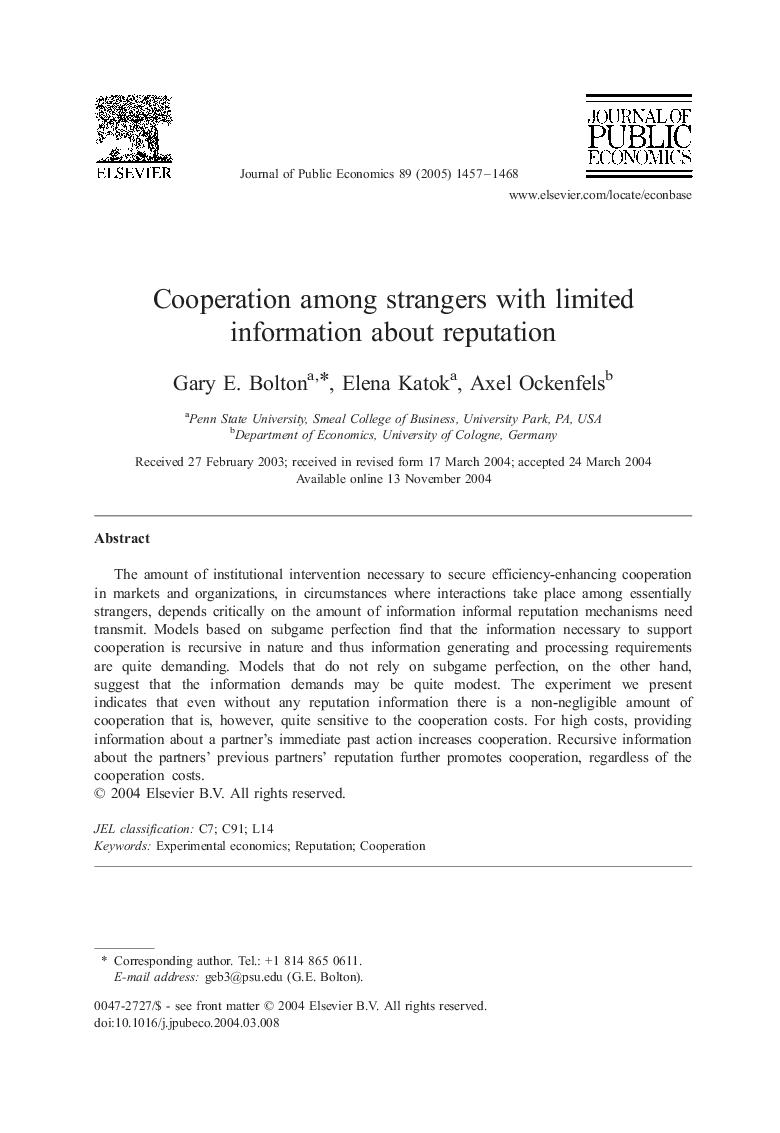| Article ID | Journal | Published Year | Pages | File Type |
|---|---|---|---|---|
| 10479345 | Journal of Public Economics | 2005 | 12 Pages |
Abstract
The amount of institutional intervention necessary to secure efficiency-enhancing cooperation in markets and organizations, in circumstances where interactions take place among essentially strangers, depends critically on the amount of information informal reputation mechanisms need transmit. Models based on subgame perfection find that the information necessary to support cooperation is recursive in nature and thus information generating and processing requirements are quite demanding. Models that do not rely on subgame perfection, on the other hand, suggest that the information demands may be quite modest. The experiment we present indicates that even without any reputation information there is a non-negligible amount of cooperation that is, however, quite sensitive to the cooperation costs. For high costs, providing information about a partner's immediate past action increases cooperation. Recursive information about the partners' previous partners' reputation further promotes cooperation, regardless of the cooperation costs.
Related Topics
Social Sciences and Humanities
Economics, Econometrics and Finance
Economics and Econometrics
Authors
Gary E. Bolton, Elena Katok, Axel Ockenfels,
